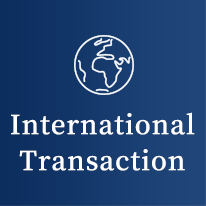Foreign exchange risk in international transaction contracts
Foreign Exchange Risk
When conducting international transactions, it is extremely important to determine which party bears the foreign exchange risk. Specifically, it is a question of whether the transaction is denominated in yen or dollars. In the current extremely volatile exchange rate environment, exchange rate fluctuations alone can result in either a large surplus or a large deficit, depending on the case. For example, if you purchase a product for $1 million and the price is 100 yen to the dollar, you will only need to pay 100 million yen, but if the price is 120 yen to the dollar, you will need to pay 120 million yen. On the other hand, if the price of the product is 80 yen to the dollar, only 80 million yen will be required to be paid. If the resale price of the product is 120 million yen, the profit will be zero if the yen depreciates by 120 yen, while a yen appreciation of 80 yen will result in a gross profit of 40 million yen.
Foreign Currency Transactions and Forward Exchange Contracts
Since no one can accurately predict how the exchange rate will fluctuate, purchasing goods in dollars based solely on the assumption that the yen is expected to appreciate is almost a gamble. Japanese companies would prefer to trade in yen, because if they can trade in yen, the amount payable can be fixed regardless of fluctuations in the exchange rate. However, the same situation also applies to the other party to the transaction. For example, an American company would prefer to settle in dollars. If you need to settle in dollars, you can hedge the exchange risk by entering into a forward exchange contract, although you will have to pay a small fee for this service. Forward exchange contracts can be made over the counter at a bank, but for a certain fee, it is a purchase of a currency option. A forward exchange contract would, for example, buy the right to purchase one dollar for 100 yen in one year’s time.
Hedging Currency Risk
If you initially purchase $1 million in goods at 100 yen to the dollar and the payment for the goods will be made one year later, the purchase of the option will be a powerful tool. If the yen depreciates to 120 yen per dollar after one year, you can exercise your option to purchase the 120 yen dollar for 100 yen. By exercising the option, you can purchase 1 million dollars for 100 million yen, so the settlement amount will only be the originally planned 100 million yen. In this case, the risk of yen depreciation has been avoided, and the currency risk has been hedged. On the other hand, if the yen appreciates to 80 yen to the dollar one year later, you can purchase 1 million dollars by paying 80 million yen, which means that you only need to pay 80 million yen. In the above example, as a Japanese company, you can purchase the product for 80 million yen and sell it to a customer for 120 million yen, thus earning a gross profit of 40 million yen and enjoying the benefits of the strong yen. The option right is the right to purchase $1 for 100 yen, but in a strong yen situation, the company can purchase $1 for 80 yen, so it no longer needs to exercise that right. Therefore, the Japanese company would simply waive the option right.
Confirmation of Settlement Currency
Since international sales contracts usually specify whether payment is to be made in dollars or in yen, you should always confirm which currency the settlement will be in, and if it is not stated in the contract, you should confirm at the outset whether the transaction is in yen or dollars.










